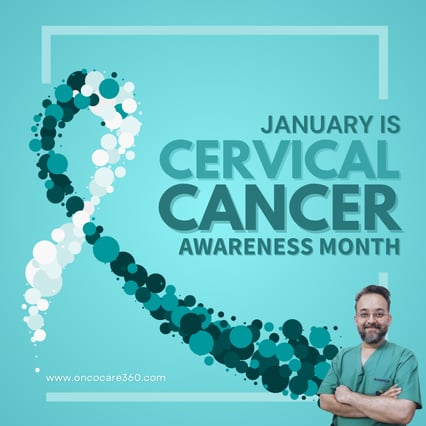10 FAQs on Cervical Cancer
Frequently asked questions about Cervical Cancer answered in the Cervical Cáncer Awareness Month of January
Dr Sudipto De
1/15/20252 min read


Frequently asked questions on Cervical Cancer
What is the survival of cervical cancer?
Cervix Cancer is one of the most common cancer in India. the survival in cervical cancer ranges from 80% in early stages to less than 10% in stage four metastatic cancer.
What are the symptoms of Cervical Cancer?
Symptoms of Cervical cancer mainly include discharge from the private parts which can whitish or reddish in discharge. As this can take place in women of menstruating age, it can be highly misleading and symptoms can be confused with infections leading to advanced disease at presentation.
What is the cause for cervical cancer?
Cervix cancer is caused due to infection by human papilloma virus. This infection causes inflammation of the cervix, which leads to cancer. This inflammation of the cervix can be detected in early stages by regular examination.
Vaccination for cancer service
There are two types of vaccines available, Gardasil and Cervarix. These can be given from the age of 9 onwards, two or three doses. It can prevent against six different cancers. In fact, the government of India is planning to start offering these vaccines free of cost.
Diagnosis of Cervix Cancer
The diagnosis of cervical cancer is established with a biopsy of the cervix. For local staging, we usually do a contrast MRI. A PET scan is done for the metastatic workout.
What is the treatment for cervical cancer?
In early stages, it is treated with the help of Surgery known as radical hysterectomy, which involves removal of the uterus with the cervix and the ovaries, and the lymph glands in the pelvis. However, in locally advance stages, it is usually treated with a combination of chemotherapy and radiation therapy. First stage four disease, chemotherapy, and immuno therapies can be used.
What are the complications associated with radical hysterectomy?
The most common complication associated specifically with radical hysterectomy is difficulty in passing urine after the operation. For this reason, urinary catheter may be retained for 4 to 6 days.
What time does it take me to recover from the surgery?
Recovery after surgery takes about 2-3 weeks. You will be started with food 3-4 days after the surgery and discharged 5-7 days after the surgery. The surgery is mostly done through a long incision in the Abdomen.
How long does the ChemoRadiation Therapy last for?
The Radiation Therapy lasts for 6-7 weeks, 5 sessions a week with an off on the weekends. Chemotherapy is given once a week. Brachytherapy is an unique Radiation technique in which fine needles are inserted into the Cervix through which Radiation can be delivered in a high dose. This happens over a period of 2-3 days
What are the complications associated with Chemo Radiotherapy?
The side effects of Chemo Radiotherapy includes dryness in the private parts, difficulty in urination, bleeding and diarrhoea.